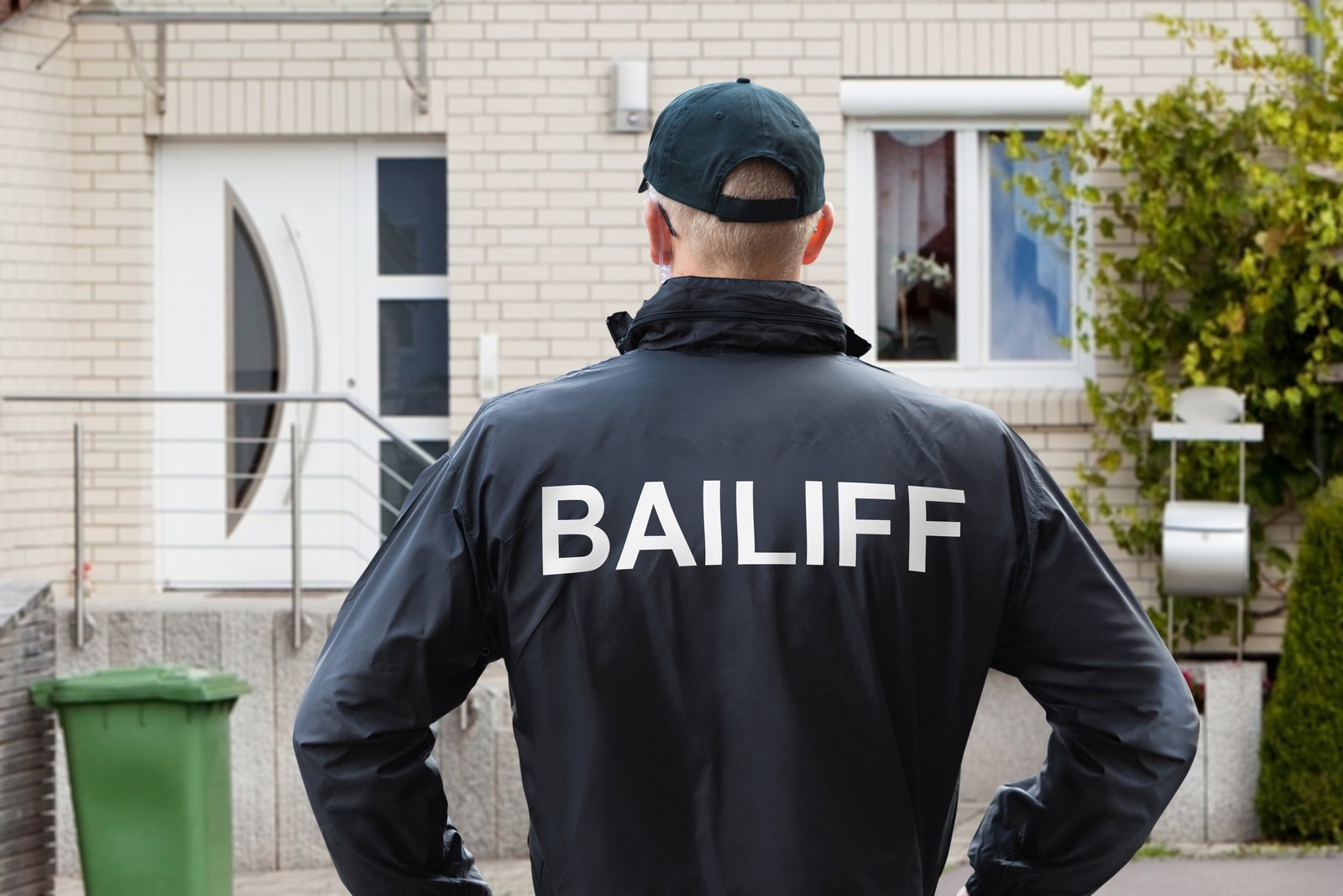The world of personal debt is rife with misconceptions, especially when it comes to bailiffs. Here are 5 of the most common myths about bailiffs debunked
My creditors can send bailiffs to my house to collect payment
One of the biggest concerns people have when they start struggling to pay their debts is that their creditors will call in the bailiffs. Some unscrupulous creditors might also play on this fear and threaten debtors will bailiff action. That’s why it’s important to know the truth: only the courts have the authority to instruct bailiffs.
Court-appointed bailiffs will typically be tasked with enforcing a County Court Judgement (CCJ) that isn’t being repaid. They must follow a strict code of conduct and they should never arrive unannounced. Instead, you should receive a letter, known as a notice of enforcement, at least a week in advance of anyone turning up on your doorstep.
If your creditor hasn’t yet taken court action against you and you haven’t been issued with a CCJ, they can only send a collection agent or private debt collector to try and recover their debt. These private enforcement agents don’t have the same rights as bailiffs and, perhaps most reassuringly, they don’t have the power to force entry into your home to start seizing goods.
Bailiffs can take anything they want from my home
When bailiffs enter your home, there are rules governing what they can and can’t take. They never have free rein to take anything they like.
Typically, they’ll prioritise items that have potential resale value. This might include luxury goods and electronics such as televisions, stereo systems, games consoles, and jewellery.
Bailiffs must not remove the essentials you need to live. Your oven, fridge, bedding, dining table, heating appliances, and lighting fixtures should all be left behind. They also shouldn’t attempt to remove fitted furniture, medical equipment, or pet supplies.
If you work from home or in a role that involves owning your own tools and equipment, bailiffs also cannot remove anything you need to do your job up to a total value of £1350.
Only goods that you own or jointly own can be taken by bailiffs. If you live with a partner, friend, or family member, their goods shouldn’t be affected. However, if you jointly own a car or a TV for example, these could be up for grabs. In a mixed household, consider having paperwork readily available to prove who owns each item if possible.
Bailiffs are aggressive
Unfortunately, bailiffs don’t have the best reputation. TV shows and films often depict them as the bogeyman, breaking down doors, issuing threats, and sometimes even resorting to violence. In reality, bailiffs are regulated, follow codes of conduct, and must not harass you or act aggressively. In the unlikely event that you are on the receiving end of inappropriate bailiff behaviour, you can lodge a complaint.
When dealing with bailiffs, know your rights. Bailiffs must not use offensive language; try to intimidate you; repeatedly call, text, or visit you; or tell your neighbours that you’re in debt.
If you do need to make a complaint, you can do so direct to the creditor as well as to the court where the bailiff is registered.
There’s no point negotiating with bailiffs
When a letter arrives on your doormat informing you that bailiffs intend to visit, you might think there’s nothing you can do. In fact, if you act quickly, you could prevent the bailiffs from turning up at all.
Depending on your current situation, you might be able to pay off the debt in full, make a part payment, or negotiate a new payment schedule. Call the number listed on the letter from the bailiff to explain your circumstances and how much you can afford to pay, either upfront or each month.
An offer that’s realistic and affordable is more likely to be accepted. You can also send a copy of your budget and calculations to both the bailiffs and your creditor as evidence.
If your offer is refused, you can apply to the court and ask them to decide how much you should pay. The letter should explain whether your debt is a county court or high court debt. Once you’ve applied to the correct court, they’ll review your case and budget and set an affordable repayment amount. Make these payments on schedule and you won’t have to worry about a bailiff visit.
Consider seeking expert debt advice if you find yourself in this situation. An expert can talk you through the process, help you work out your budget, and explore whether any other debt management solutions might help.
Bailiffs can force entry into my home
In the UK, bailiffs aren’t allowed to force entry into your home unless very specific circumstances have been met.
You should receive a notice of enforcement at least seven days before the bailiff’s intended visit. On the day, they can only enter your property if they can do so using any usual means. That means they can come in via an unlocked door, attached garage, or garden gate, but they can’t push past you or block you from shutting the front door.
Bailiffs can only force entry if they’ve already entered peacefully before and they have a legal right to re-enter to take control of goods. They may also apply to the court if they wish to use ‘reasonable force’ to gain access. This only applies in certain cases like enforcing a criminal conviction or when collecting specific types of debt such as unpaid tax.
Facing a visit from the bailiffs? Our team of experts is here to help you negotiate a repayment plan. Give us a call on 0161 8260 585 or send a message here







